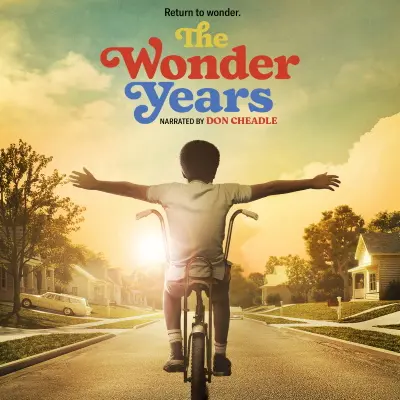In 2021, The Wonder Years, Swagger and Colin in Black and White challenged stereotypes about Black boyhood
-

They joined previously launched shows like All American and David Makes Man "in centering the vulnerability, curiosity and emotional complexity of Black boys," says Salamishah Tillet. "The result has been that in 2021, we could find more nuanced portrayals of Black boyhood on TV than ever before. These shows challenge not only the predominance of coming-of-age narratives about white male adolescents but also the longstanding typecasting of Black boys onscreen as impoverished, clownish, hyper-violent or otherwise threatening." As Wonder Years reboot creator Saladin K. Patterson explains: "I just want to be a part of that conversation. And just show a different side of a Black boy that is intelligent, that’s sensitive, that doesn’t always get the girl, but has a very high emotional I.Q.” Tillet adds: "This shouldn’t feel exceptional, but it does. I watched the original Wonder Years as a kid in the late 1980s, but the only Black boys I saw on television at that time were there for comedic relief, like the awkward Steve Urkel from Family Matters or the frequently ridiculous Carlton Banks of the Fresh Prince of Bel-Air. The best I could hope for was a two-dimensional supporting character like Theo Huxtable of The Cosby Show, and of course his portrayal was a rejection of earlier shows like Diff’rent Strokes and Webster that featured orphaned Black boys saved by wealthy white households. Later, I watched movies, like Boyz N The Hood, Juice and Menace II Society, all of which showed young Black protagonists trapped in the cycle of gun, gang and police violence. With the exception of the more well-rounded comedy Everybody Hates Chris, it was still hard in the 2000s to find a show, even well-intentioned ones like The Wire, that attended to the concerns of young Black men with seriousness and nuance or without inevitably framing their lives as shaped by poverty and a winnowing of opportunity."
TOPICS: The Wonder Years (2021 Series), All American, Colin in Black & White, David Makes Man, Swagger, African Americans and TV
More The Wonder Years on Primetimer:- Allegations against Fred Savage explored as Danielle Fishel explains why the actor's controversy wasn't discussed on Pod Meets World podcast
- The Wonder Years Crewmember Alleges Fred Savage 'Forcefully' Assaulted Her
- ABC renews five scripted shows: The Wonder Years, Home Economics, Big Sky, A Million Little Thingsand The Conners
- Before his Wonder Years firing, Fred Savage previously settled a The Grinder lawsuit in which his accuser alleged he "violently struck" her on set
